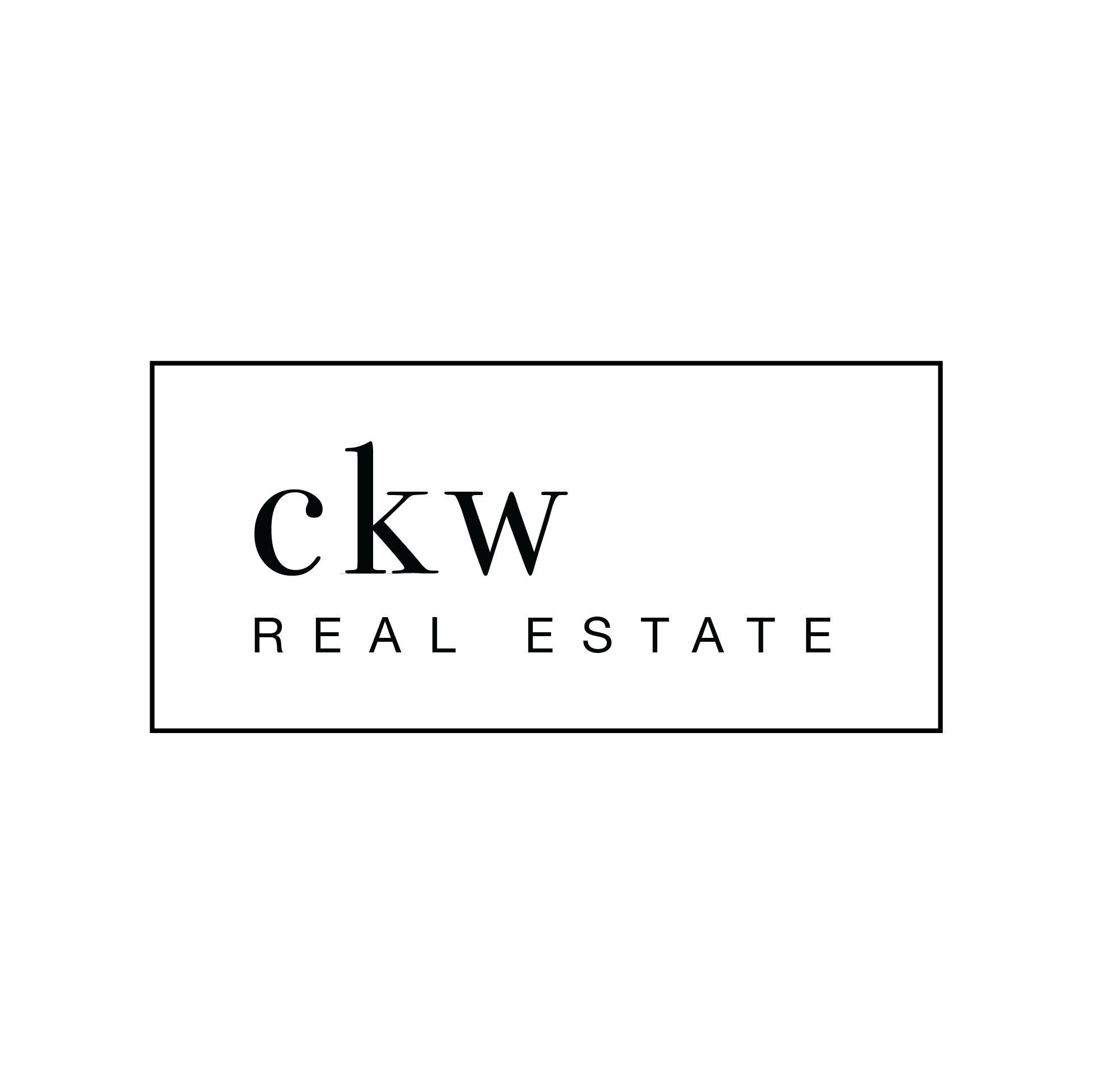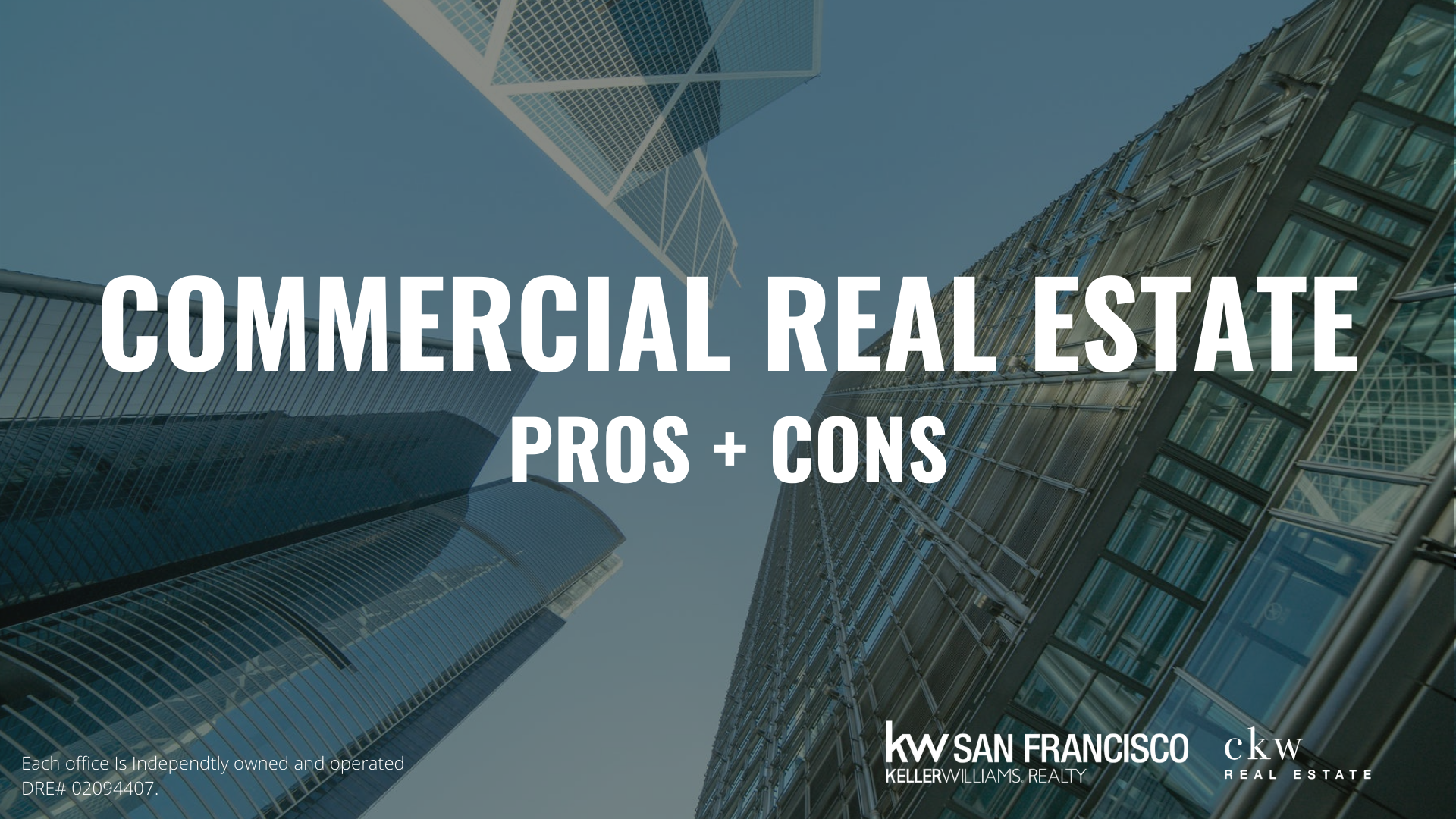Commercial Real Estate Pros + Cons
Commercial properties offer higher returns and more passive income than almost any other type of investment. The wide variety of commercial properties makes them especially appealing––buyers can find a huge profitable property just about anywhere regardless of property values. Commercial properties usually boast annual returns between 6% and 12% off the purchase price, much higher than the typical 1% to 2% returns for single-family home properties. While profits on a single-family home depend on property values, maintenance, and a good bit of luck in timing, a commercial property should earn enough income to pay for itself in just a few years.
No investment is without risk. The wide variety of commercial properties means there are almost as many ways a property deal can go wrong as it can be profitable. It’s especially important for buyers to have all the information they need to make the right choice in such a diverse market. Before putting your savings into a commercial property that could be with you for life, read some of this key information on financing, risk, and property management to help you make the right call:
Financing
You don’t have to buy a property with your own personal savings, but the wrong financing option could cut both your profits and savings down to almost nothing. Although there are definitely pros and cons to any financing option, the worst financing decision of all is to make a decision without all the facts. Knowing how to structure your purchase so it’s manageable and matches your returns will keep your profits out of the bank’s pocket.
Con: Commercial property loans tend to have shorter terms than residential loans, ranging from only 6 months to 20+ years. Usually, rates are higher than residential loans too. Prepayment restrictions and penalties are also more common.
Pro: There are almost as many financing options as there are types of commercial properties. This huge variety means there are plenty of options for both first-time buyers and veteran investors to buy a property with little to no money down. If you pick a good property with fair financing, the income you earn will pay for the property and pay for the property and the loan in no time. Buyers looking to keep the bank out of their hair can also consider a seller-financed deal. This financing option means sellers handle the mortgage process instead of a bank, with a buyer signing a mortgage directly with the seller. However, this can be risky for both parties and balloon payments are often required for years after the sale. Other financing options like wrap around mortgages and small business association (SBA) loans are also popular with commercial real estate investors.
Con: Too much of a good isn’t a good thing, especially when it comes to complicated financing choices with even more complicated fine print. While there are hundreds of ways to finance a property, there are probably only a few that are feasible for you. Picking an impractical financing option can cut your profit potential passive income to a fraction of what it should be. Keep a close eye on interest rates, fees, and other transaction costs to ensure you earn the profits from your investment, not the bank. At Commercial Academy you can find intuitive software tools to help you evaluate all the elements of your property so you can make an informed financing choice.
How can you tell if a rental property is even worth financing? Many investors turn to the 2% rule for a ballpark estimate of a property’s profitability. The 2% rule says a rental property is a good investment if the total monthly rent is equal to 2% or more of the purchase price. As long as you can get rent at 2% of the purchase price, the property will pay for itself in about 4 years. Compare the price of the property to some of the rent listings in the area, especially for properties similar to the one you’re considering. If your rent estimate will cover the cost of the property and then some, it could be worth looking into financing options.
Risk
Not only do buyers need to consider the risks before starting a commercial real estate venture, but banks also consider risk when calculating interest rates. A low-risk loan will likely carry a much lower interest rate than a high-risk loan so the bank doesn’t have to worry about getting their money back if the venture fails. However, there’s a lot more to risk than the number on your mortgage, with pros and cons beyond the interest rate:
Pro: Good property insurance offsets risk and covers the underlying property in case of catastrophe. A fire could destroy both your property and your rental cash flow instantly. Since the underlying property is treated strictly as an asset generating a rate of return, buyers should also be careful in assessing underlying damage or defects that could cause catastrophe down the line. If a tenant discovers they’re sharing a flat with termites, your investment could fall apart faster than your walls. Undetected risks should be written clearly into the purchase contract to protect you from catastrophes that may already be lurking in the property.
Pro: Commercial real estate often comes with long leases. Your tenant businesses need stability as much as you do and probably want to stay in the same space long-term to avoid confusing clients. On average, commercial leases last 3 to 5 years. Lengthy lease times reduce risk and almost guarantee steady cashflow. If you follow the 2 percent rule, an average 4-year lease length should be almost enough time to cover the purchase price.
Con: Commercial real estate assessments are more complex (and often less accurate) than residential real estate assessments. When buying a residential property, property values determine if it will turn a profit. Although property values matter for commercial property success, finding businesses and individuals to rent your space matters most. Assessing property values is already hard enough. Factoring in all the additional economic, demographic, environmental, and even political elements that go into rental interest can leave investors scratching their heads.
While commercial properties can succeed in more ways than residential properties, there are so many more ways they can fail. Commercial ventures have more moving parts than a simple asset you buy and hold. Businesses are inherently risky. Most fail within 5 years, often for little reasons nobody expected when the venture started. Do people want to rent in your area now? How about next year? Or the next decade? While circumstances are often out of our control, research and preparedness can help protect you no matter what. Doing your due diligence can save you immense heartache, either from investing in a property that failed or missing out on an incredible property that could have changed your financial life forever. You can use Commercial Academy’s virtual visit tool to get census data, online property views, and other information you’ll need to make an informed investment decision.
Property Management
While passive income is a selling point for commercial real estate, it’s up to the buyer to decide how passive. Do you not have the time or the skills to manage the property yourself? You can hire a property manager to handle everything so the only thing you have to worry about is getting a check every month. Although a property manager can save you time, finding a property manager at a fair rate can cost lots of time and money on the front end.
One of the more popular ways to hire a property manager is to find someone you trust, maybe a friend or family member, and give them a free unit on the property. Not only will this offset labor costs, but the property manager will also be accessible to tenants as they share an address. This can make collecting rents and addressing tenants much simpler and cut through red tape. Having a property manager you trust on the property can put your mind (and your tenant’s!) at ease, leaving all parties feeling supported.
For more extensive professional property management services, you can hire a 3rd party property management company and let them handle anything. Their company will dispatch a manager if anything goes wrong. However, this can be much pricier with longer wait times for tenants. Tenant-landlord relations can easily sour if tenants don’t trust the property management company. Even with the company’s more extensive services, the owner still has to deal with issues like missed rent payments or lease violations. While the third party company probably handles simple material issues brilliantly, the owner will likely have to have to handle important human and executive decisions, which can be even more stressful.
Pros: Property management eliminates a massive amount of work for owners. This frees up time to handle executive decisions for your investment and worry about big picture issues rather than putting out little fires every month, sometimes literal. You can also deduct property management costs from your income statements, which lowers your taxes.
Cons: No third party will be as driven as you to manage client-owner relationships. Even if you hire a property manager you trust, it’s still up to you to set a vision and a tone for your commercial property. You the owner has to handle all executive decisions and keep the business alive. While the income may be passive, crafting and following through with a successful investment strategy is anything but. At Commercial Academy’s live events, investors learn to identify strong investment strategies, identify great properties, and build a vision for long-term growth. Most small businesses fail after 5 years, with 12% of rental businesses failing within the first year. It’s important to have a good strategy before you put a good chunk of your savings into an investment that could easily fail.
Summary
While there are certainly cons to investing in commercial real estate, the passive income, high-risk protection, and abundant cashflow make it safer and more profitable than almost any other investment out there. The reward requires some risk, but what reward doesn’t? If you do your research and arm yourself with a good agent, investing in commercial real estate could be one of the most profitable and rewarding decisions you ever make. Schedule a free consultation with CKW Real Estate today!
STILL HAVE QUESTIONS? CALL (415) 854-2224 OR EMAIL ME AT CRYSTLE@CKWPROPERTIES.COM TO GET ANSWERS TO ALL OF YOUR QUESTIONS!
LINKS TO OTHER BLOG ARTICLES
QUICK GUIDE TO BUYING A HOUSE IN SAN FRANCISCO
THINGS YOU CAN DO WHILE QUARANTINED AT HOME
HOW TO BUY A HOME DURING COVID-19
GOVERNOR GAVIN NEWSOM’S EXECUTIVE ORDER EFFECTS ON REAL ESTATE
TO BUY OR NOT TO BUY IN SAN FRANCISCO DURING SHELTER-IN-PLACE
WHAT THE CARES ACT MEANS FOR YOU (CORONAVIRUS AID, RELIEF AND ECONOMIC SECURITY ACT)
CONSTRUCTION UPDATES FOR SHELTER-IN-PLACE
CONFIRMING WITH THE IRS WHERE TO SEND YOUR STIMULUS $$$
SAN FRANCISCO: IS NOW A GOOD TIME TO SELL A HOUSE?
HOW SAN FRANCISCO REAL ESTATE GOT SO EXPENSIVE AND WHY SF REAL ESTATE VALUES HOLD
HOW TO CHOOSE A REALTOR TO SELL YOUR INVESTMENT PROPERTY IN SAN FRANCISCO: 5 ESSENTIAL TIPS
PROP 19 PROPERTY TAX CHANGES & ACTIONS TO TAKE
ABOUT OUR FOUNDER, CRYSTLE WONG
As the CEO of a San Francisco founded, global tech startup, Crystle understands from experience what it takes to succeed. Her real estate experience spans from successfully managing multiple properties over the last 10+ years including residential, commercial, and mixed-use, as well as her time spent actively investing in flipping properties, tax liens, tax deeds, and other property types. As a native born and raised in San Francisco, you can trust that you’re in good hands of a local who can help you navigate the micro neighborhoods of San Francisco. Crystle invests in relationships and you can count on her to walk with you through the process of buying or selling your property.
Through 2020, Crystle has focused on working with local Churches, nonprofits, and affordable housing developers.
You might ask yourself, “What does a tech startup have to do with real estate?”
Good question! Everything about Crystle exudes intention. Her ultimate goal is to grow her tech company so that she can utilize its philanthropic arm to fund micro-housing for the homeless in partnership with key, long standing and successful social services organizations with a successful track record of housing and reintegrating those at risk back in her hometown of San Francisco. Real Estate gives her the ability to network and learn about developing land to purchase in the future to develop the micro housing. Her time serving on boards for these non profits gives her the knowledge of what these organizations really need to be able to get more people off the streets for good.
The same cornerstones that drive success in her tech company are the same cornerstones that make her the best real estate agent to work with: honesty, transparency, integrity, and a relationship- focused mindset toward life.
Crystle was born and raised in San Francisco’s Inner Richmond district and continues to choose to establish her future life in San Francisco as well. She is a woman of her word. She not only financially supports several not-for-profits, but also regularly serves in her community helping the homeless, youth, and those in poverty. COVID19 has really shown Crystle and her husband how blessed they are. They now do a weekly homeless hot meal distribution for those in need on the streets of their neighborhood.
In her spare time, she is an active and current member of the Board of Directors of Lutheran Social Services of Northern California, the APA Heritage Foundation Committee of San Francisco, and volunteer for Mobilize Love. She has previously and faithfully served on the Board of Directors for Zion Lutheran Church and School of San Francisco, the Board of Directors for Designing a Difference, the Board of Directors for APAPA San Francisco, a member of the Friends of Smuin Ballet, and as a Co-Chair for the Princess Project.






